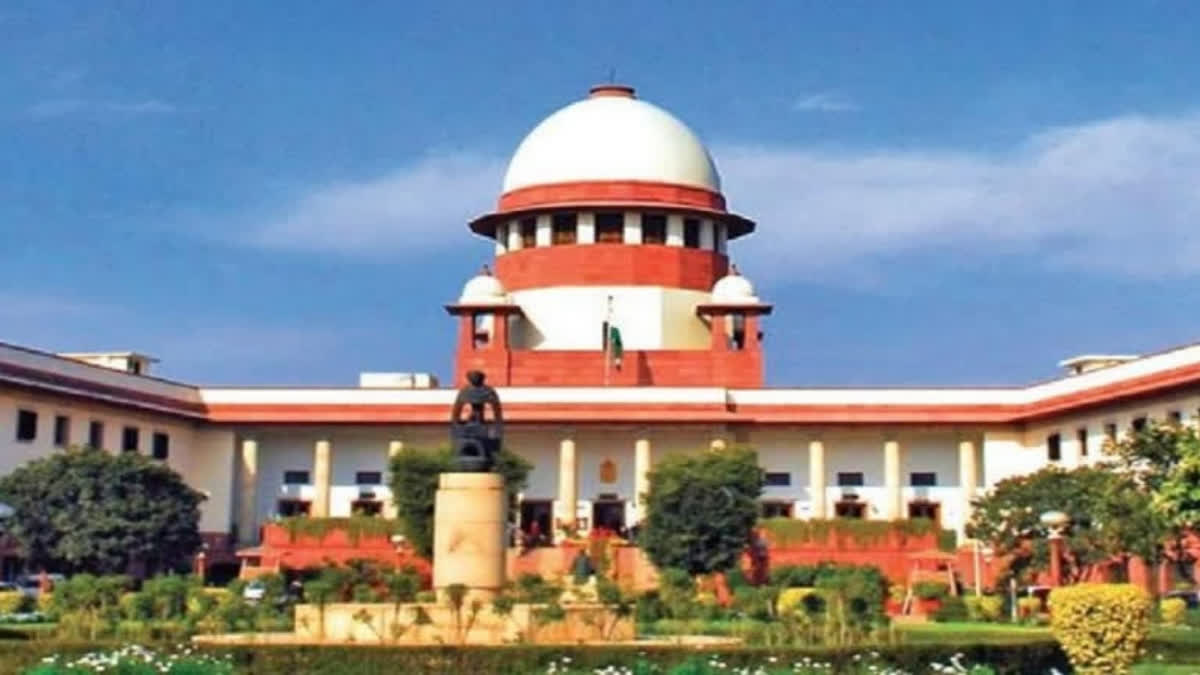New Delhi:The Supreme Court said the right to vote, based on an informed choice, is a crucial component of the essence of democracy and the elector or voter’s right to know about the full background of a candidate, and though democracy is one of the essential features of the Constitution, yet somewhat paradoxically, the right to vote has not been recognised as a fundamental right yet; it was termed as a “mere” statutory right.
A bench comprising justices S Ravindra Bhat and Aravind Kumar said, “The right to vote, based on an informed choice, is a crucial component of the essence of democracy. This right is precious and was the result of a long and arduous fight for freedom, for Swaraj, where the citizen has an inalienable right to exercise her or his right to the franchise”. The top court stressed that the elector or voter’s right to know about the full background of a candidate- evolved through court decisions- is an added dimension to the rich tapestry of constitutional jurisprudence of the country.
The bench said this finds articulation in Article 326 of the Constitution, which enacts that “every person, who is a citizen of India and who is not less than 21 years of age on such date as may be fixed and is not otherwise disqualified under this Constitution or any law made by the appropriate Legislature on the ground of non-residence, unsoundness of mind, crime or corrupt or illegal practice, shall be entitled to be registered as a voter at any such election”.
Justice Bhat, writing the judgment on behalf of the bench, said democracy has been held to be a part of one of the essential features of the Constitution. “Yet, somewhat paradoxically, the right to vote has not been recognised as a fundamental right yet; it was termed as a ‘mere’ statutory right”, said Justice Bhat, in a judgment uploaded on July 24.
The top court made these observations while considering a challenge to the Telangana High Court order, which dismissed an application seeking rejection of the election petition filed against Bhim Rao Baswanth Rao Patil, the appellant. The election petition had been filed for non-disclosure of certain pending cases against him and Patil had contended that the election petition did not disclose any cause of action and was liable to be rejected under Order VII Rule 11 of the Code of Civil Procedure. The apex court dismissed the appeal and affirmed the High Court order.
The appellant in this case was elected from the Zaheerabad parliamentary constituency in 2019 and an election petition was filed challenging his election under various sections of the Representation of People Act, 1951 on the ground of non-disclosure of pending cases against him. The bench said: “This court is of the opinion that if the appellant’s (Patil’s) contentions were to be accepted, there would be a denial of a full-fledged trial, based on the acknowledgement that material facts were not suppressed”.
The bench noted that whether the existence of a criminal case, where a charge has not been framed, in relation to an offence which does not possibly carry a prison sentence, or a sentence for a short spell in prison, and whether conviction in a case, where the penalty was imposed, are material facts, is contested. “This court would be pre-judging that issue because arguendo if the effect of withholding some such information is seen as insignificant, by itself, that would not negate the possibility of a conclusion based on the cumulative impact of withholding of facts and non-compliance with statutory stipulations (which is to be established in a trial). For these reasons, this court is of the opinion that the impugned judgment cannot be faulted”, said Justice Bhat.
